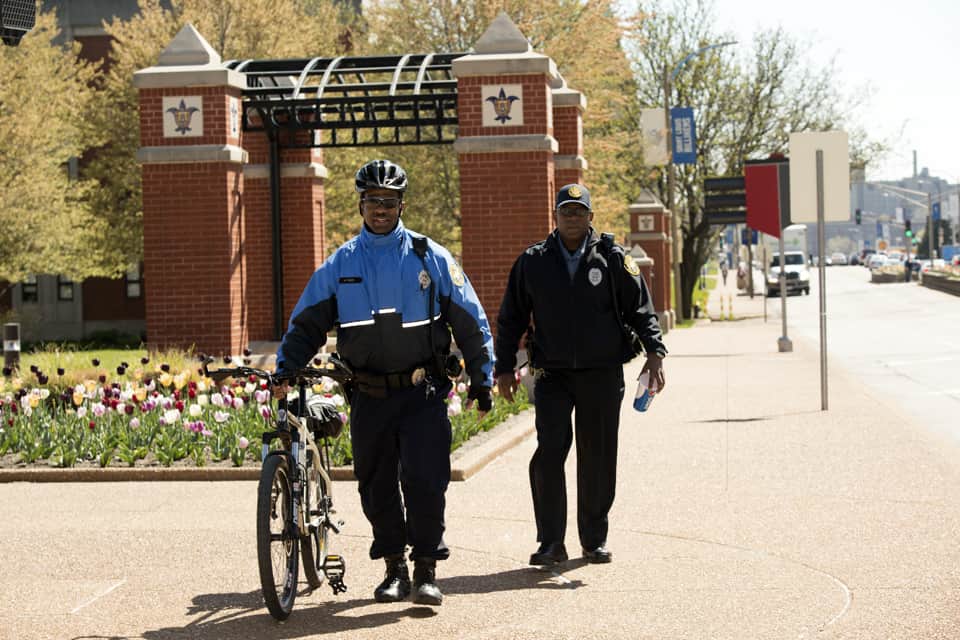Campus Status
Campus is operating normally at this time
Report an Emergency
On campus: 314-977-3000 or 911 for police, fire or medical.
Emergency Preparedness
The Saint Louis University Department of Public Safety has the primary responsibility of the emergency management function at SLU. DPS maintains the overarching Emergency Operation Plan for the University and oversees the Campus Incident Management Team.
The responsibility of emergency preparedness is to strengthen the resilience of Saint Louis University by ensuring that the University is prepared to respond to, prevent, recover from, and mitigate against the effects of a wide variety of disasters that could adversely affect the health, safety, and/or general welfare of the students, faculty, staff, and visitors. SLU’s emergency management approach is designed around an all-hazards and whole community concept which expounds upon national preparedness efforts, planning frameworks and mission areas to charge protection, mitigation, preparedness, response and recovery functions.
- Prevention/Mitigation: Measures that reduce the chance of an emergency happening, or reducing the damaging effects of unavoidable emergencies.
- Preparedness: Taking steps to increase our ability to respond in the event of an emergency. Preparedness activities include training, conducting exercises and developing plans.
- Response: Occurs immediately before, during and after an incident. Response actions are aimed at saving lives and preserving property.
- Recover: Returns the community’s systems and activities to normal. Activities may include repairing damaged buildings, cleaning up debris and restoring basic services.
Emergency management is a never-ending process. To coincide with operating SLU’s emergency management function, the Department of Public Safety will monitor best practices in the university emergency management community; remain abreast of changes in policy and procedure guidelines from the United States Department of Education, NFPA, Department of Homeland Security, and Federal Emergency Management Agency; and be diligent in mitigating against, preparing for, responding to, and recovering from all potential disasters and emergency situations threatening the Saint Louis University campuses.
It shall be the duty of Saint Louis University to respond to any emergency in a safe, effective and timely manner. All available University resources will be utilized to accomplish the following critical priorities:
- Students
- Patients
- Faculty and staff
- General public
- Maintain control of the event and prevent the event from expanding.
- Define the event and begin preparations for command and control of the situation.
- Control the event boundaries, ingress and egress, isolate the scene.
- Plan a course of response.
- Neutralize hazardous materials, contain biological or select agent release, and confine animals or elements dangerous to the environment.
- To the extent practical and possible, all actions and efforts should be taken to ensure the environment is not adversely impacted by the disaster or emergency situation.
- Protect any sheltering or care facilities as quickly and efficiently as possible.
- Protect research facilities from initial or additional damage.
- Ensure the safety of vital and critical University records and collections.
- Protect other buildings and properties used for education and operational purposes.
- Restore all services critical to the care and well-being of our student population.
- Restore all services necessary for the care of our patient population.
- Restore all services needed to maintain the integrity of research projects.
- Restore all services needed for the operation of educational classes
- Restore all critical facilities services, other than those already needed to support a basic operating environment such as electric, water, gas and communications.
